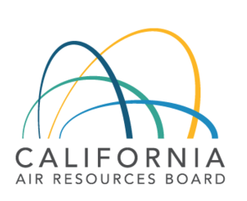
Join the UCLA Luskin Center for Innovation and the California Air Resources Board for the upcoming Research Seminar, “Designing Light-Duty Vehicle Incentives for Low- and Moderate-Income Households”
Location: Sierra Hearing Room, Second Floor, Cal EPA Headquarters, 1001 “I” Street, Sacramento, CA
WEBCAST | More Information
________________________________________
Transportation equity has become an increasingly important policy driver in California during the last few years, and Senate Bill 350 tasked the California Air Resources Board (CARB) with identifying barriers that low-income households face in accessing clean transportation. Understanding how low- and moderate-income California households make vehicle purchase and retirement decisions will inform CARB’s clean vehicle and mobility incentive programs that target these households. This study assessed the impact of new and used vehicle incentives to promote the retirement of functional, high-emitting vehicles and increase adoption of advanced clean vehicles by this population. Additionally, the study examined the vehicle holdings, vehicle purchase decision-making and financing, travel patterns, and barriers to vehicle access by households in the target population. A statewide, representative survey of 1,604 low- and moderate-income households forms the basis of this study.
Results indicate that low- and moderate-income Californians value their vehicles, as they have the same number of vehicles as the statewide average, which is two vehicles per household. Overall, slightly more low- and moderate-income households bought their last vehicle used versus new, 57% versus 43%, but those with annual incomes less than $25,000 were much more likely to have bought a used vehicle. The overall mean purchase price for the household’s main vehicle was almost $14,000, which is over half of their yearly income. The average vehicle reported by the survey respondents is about eleven years old with 88,832 miles per self-reported odometer reading, and with an average fuel efficiency of 23.5 miles per gallon.
Through analyzing the results of a vehicle choice experiment included in the survey, the research team found that offering vehicle rebates significantly increases the adoption of new and used advanced clean vehicles. Specifically, the adoption of conventional hybrid vehicles, plug-in hybrid electric vehicles (PHEVs), and battery electric vehicles (BEVs), with purchase incentives of $2,500, $5,000, and $9,500 increased the hypothetical purchase rates by approximately 20%, 40%, and 60-80%, respectively across vehicle types compared to no incentive. In contrast, offering guaranteed loans had a small and uneven effect on the propensity to purchase these vehicles.
________________________________________
Speakers Biography
J. R. DeShazo, Ph.D., directs the UCLA Luskin Center for Innovation and is the Chair of the Department of Public Policy in the Luskin School of Public Affairs, University of California, Los Angles. He holds joint appointments within UCLA’s Institute of Environment and Sustainability as well as the Urban Planning and Civil and Environmental Engineering Departments. Dr. DeShazo’s research has focused on the design and evaluation of climate and air pollution control policies, the electrification of the transportation sector, clean energy procurement and efficiency programs and the performance of community choice energy/aggregators. He has advised the US Department of Energy, California Governor’s Office of Planning and Research, California Public Utilities Commission, California Energy Commission, the California Air Resources Board, and various utilities including the Los Angeles Department of Water and Power, Southern California Edison, and Sonoma County, among others. He holds a Ph.D. in Urban Planning with a concentration in economics from Harvard University, a master’s of science in Development Economics from Oxford University, St. Antony’s College where he was also a Rhodes Scholar, and a bachelor’s from the College of William and Mary.
Greg Pierce, Ph.D., is the Associate Director of Research at the UCLA Luskin Center for Innovation. Greg also serves as a senior researcher at the Center, leading the Advanced Transportation, Environmental Equity and Sustainable Water initiatives. He is also an Adjunct Assistant Professor in the UCLA Department of Urban Planning. Dr. Pierce’s research on transport and water as a basic resource/service provision and access for disadvantaged or marginalized populations takes place at three connected scales the state, the metropolitan and the household. Current and past sponsors of this work include the California Air Resources Board, the South Coast Air Quality Management District, the Strategic Growth Council, the U.S. Housing and Urban Development Department, The Resources Legacy Fund, the UC Multicampus Research Initiative, the UC Institute of Transportation Studies and the UCLA Grand Challenge. He has published 25+ peer-reviewed journal articles. Greg received a Ph.D. in Urban Planning in 2015 and an M.A. in Urban Planning in 2011, both from UCLA.


